STEPHANIE REINER, Farm Interpretive Aide
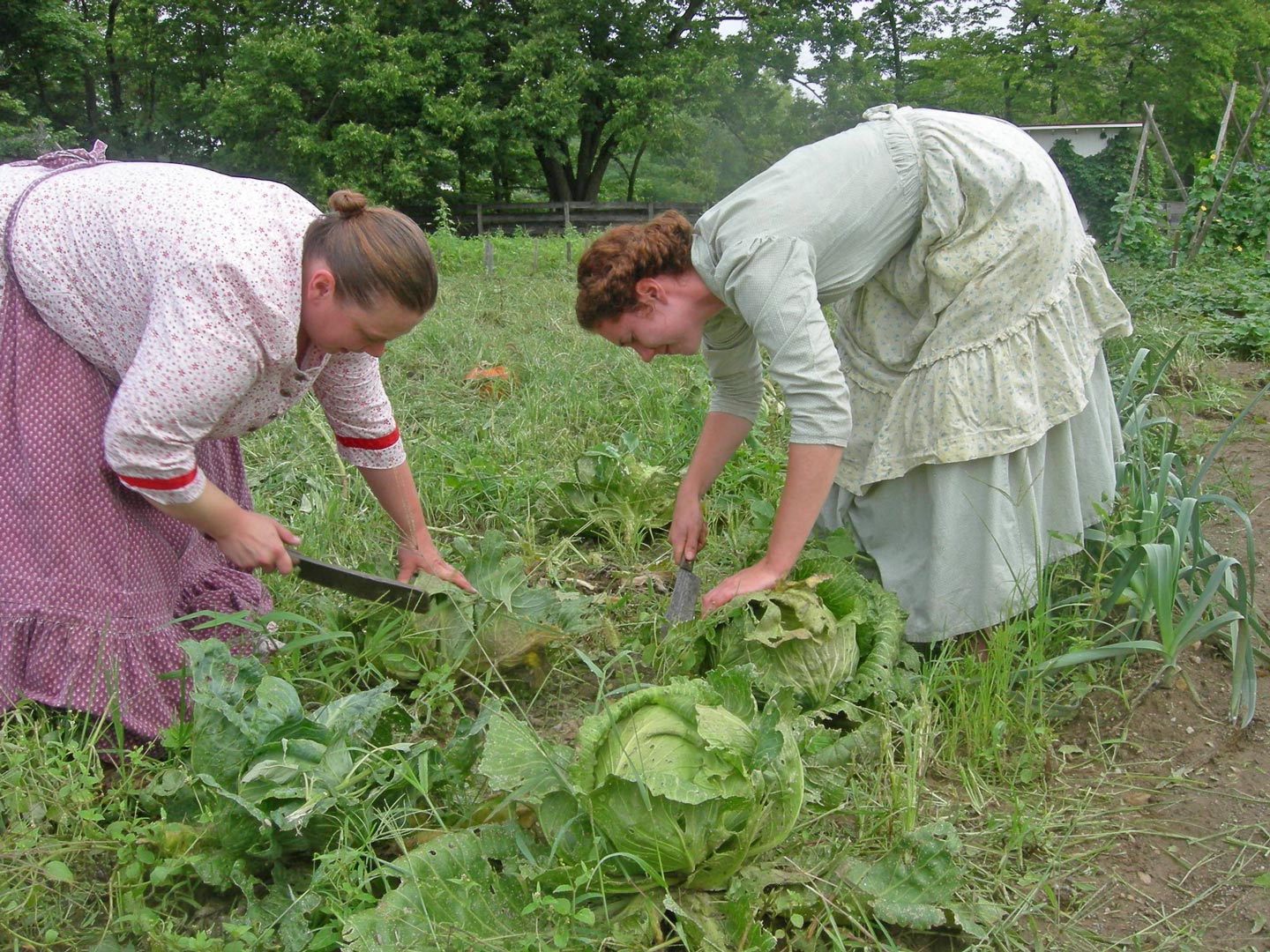
For an 1880s farm family, planting, tending to and preserving the vegetable garden was essential. Produce raised in the garden provided fresh fruits and vegetables. Some of the produce was dried and canned to keep the family fed throughout the year. The farmwife was responsible for gardening and food preservation.
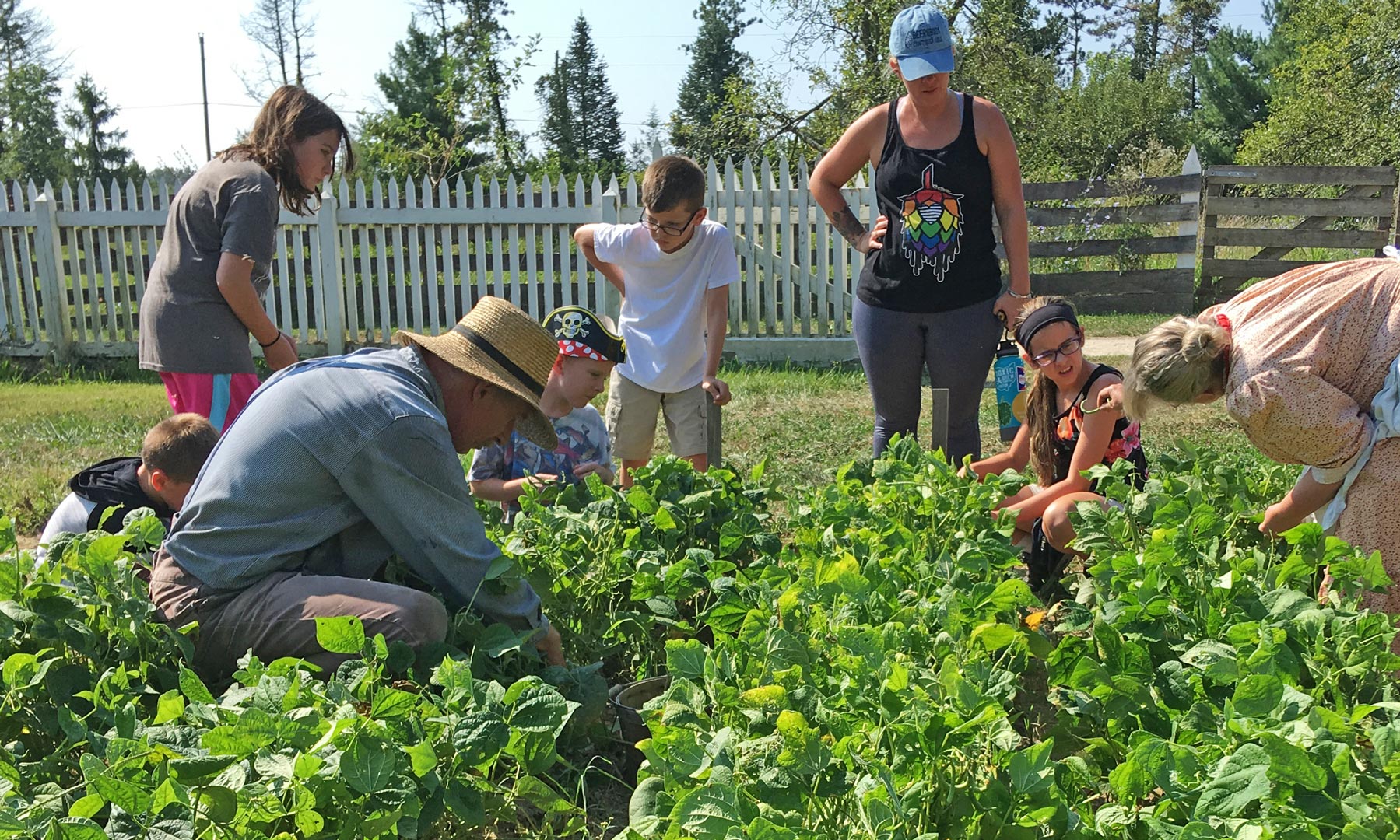
Produce harvested from the garden needed to be managed. The family couldn’t eat all that was picked in one day. Farm wives and daughters washed and preserved the excess.
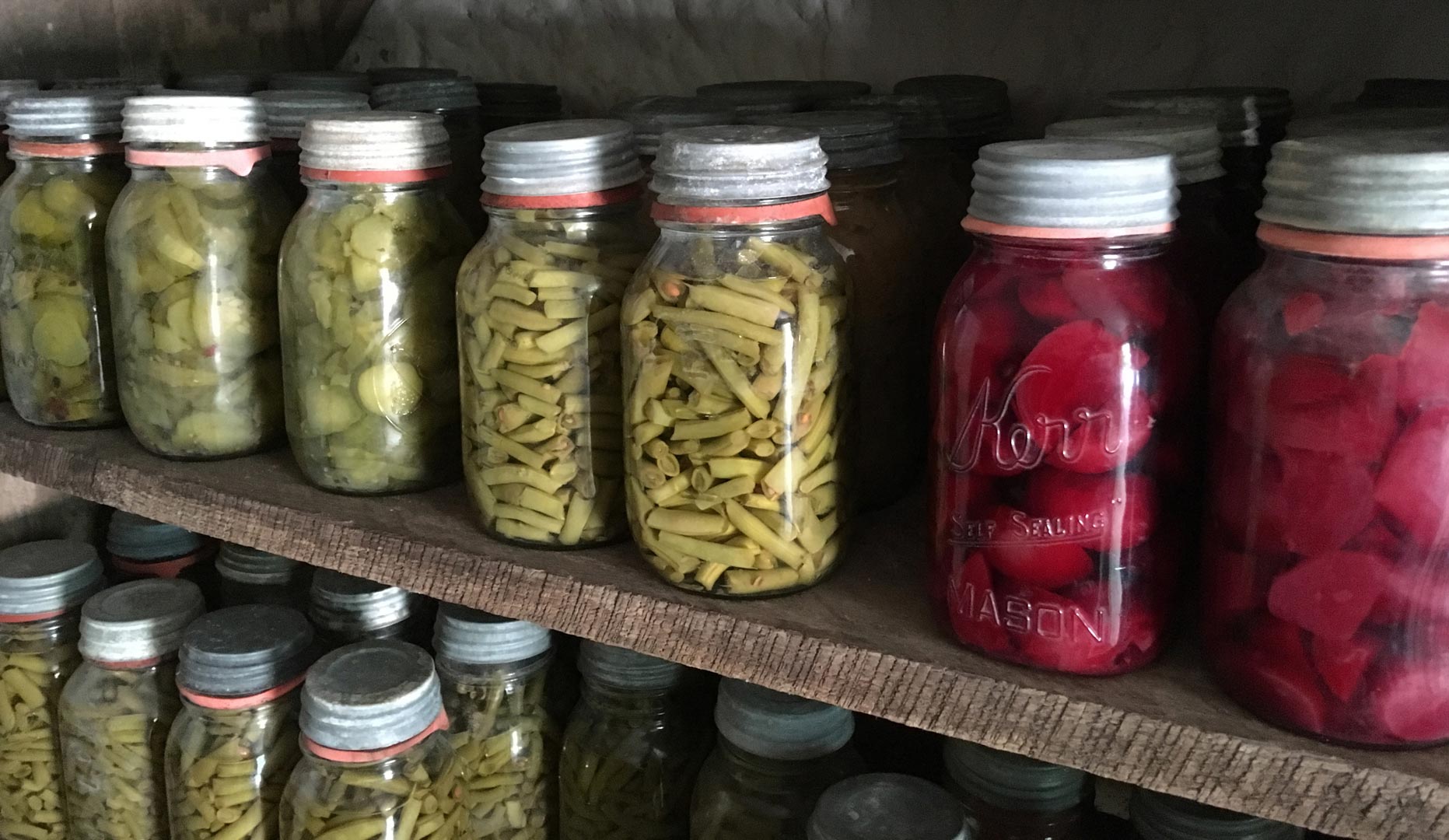
The larder shelves were filled with crocks of cucumbers, beans and corn and were stored in brine. Sweet berries and grapes, jammed and jellied, lined the root cellar. Canned applesauce, tomatoes, sauerkraut, pears, peaches and other produce were stashed in jars to provide the family’s yearly sustenance. From late spring until late fall, farm women labored over hot fires to make jars and crocks of the food.
Produce hung on strings or laid on racks and were dried using the heat of the sun or a wood stove. Apples, peaches, berries and pumpkin stored easily when dried. The farmwife soaked them in water when ready to stew the fruit or make a pie.
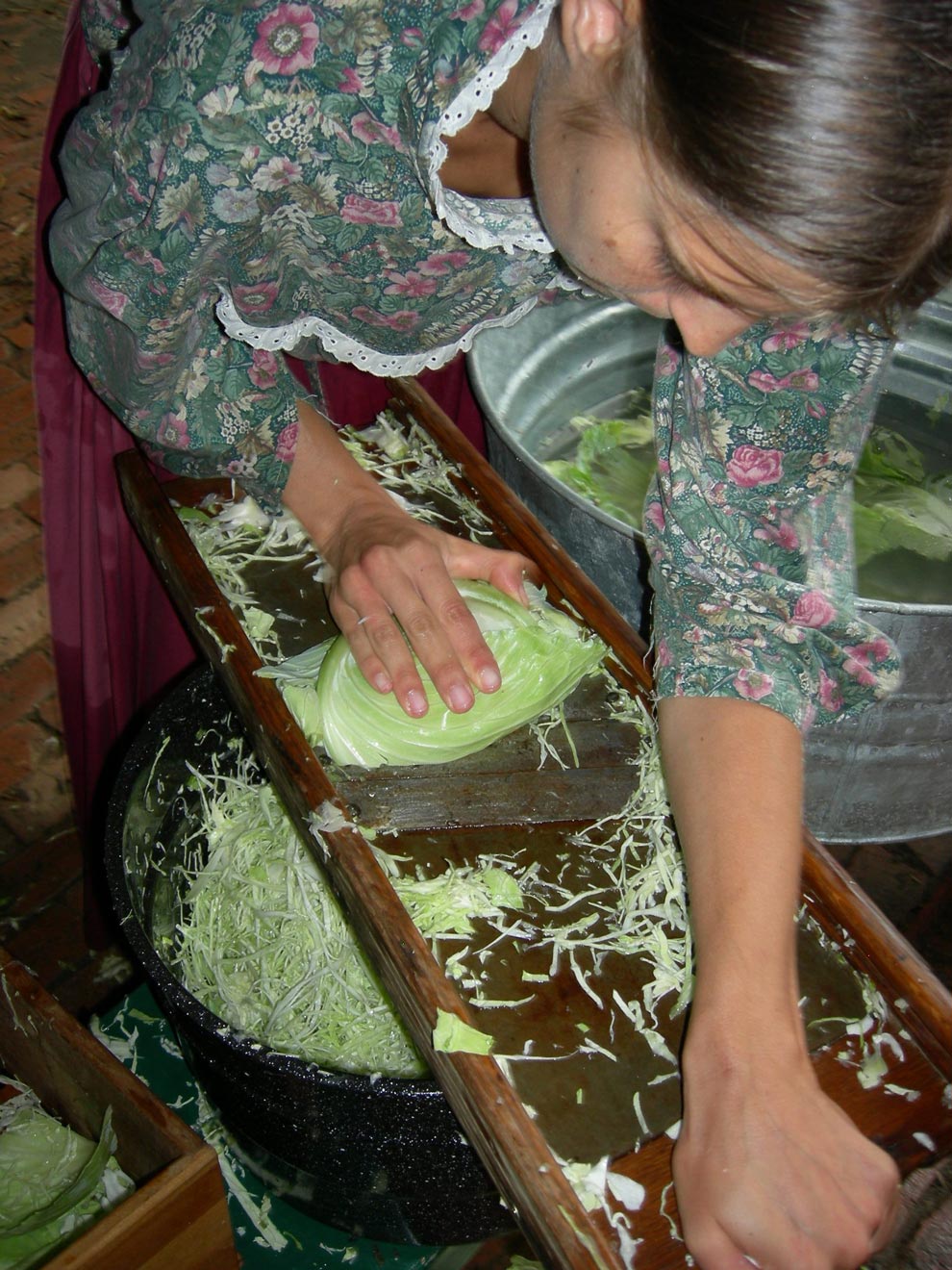
Dried beans became bean soup, baked beans or leather britches (dried whole beans cooked with onion and scraps of pork). Stewing parched corn, dried mixed vegetables and mushrooms gave variety to the palate. Cabbage was shredded to make sauerkraut.
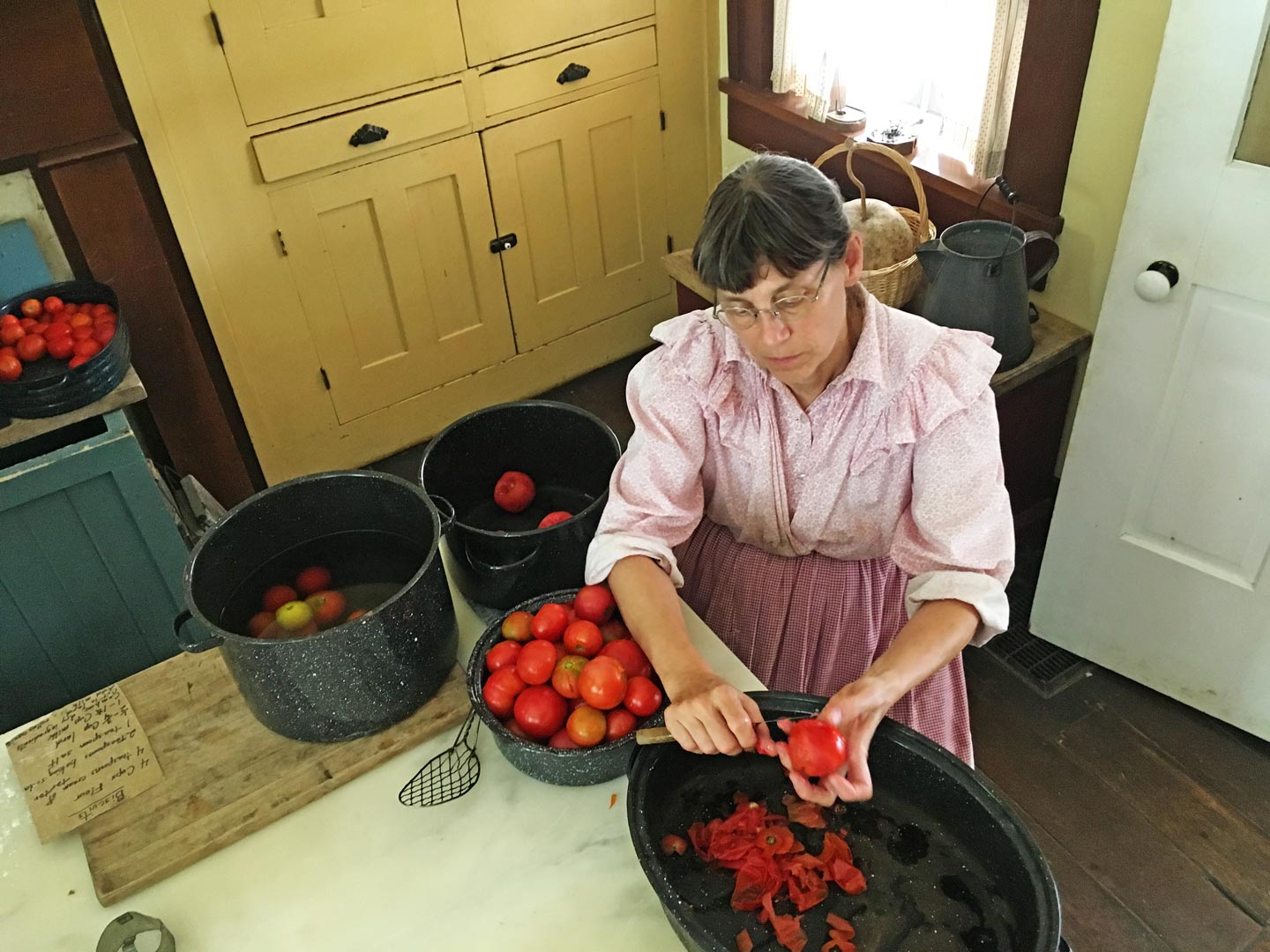
The planting, tending to and preserving of the garden paid off for the farm family. With the larder and root cellar all filled and the family well cared for through the cold months, the farm wife planned for the next year when the process started over again.
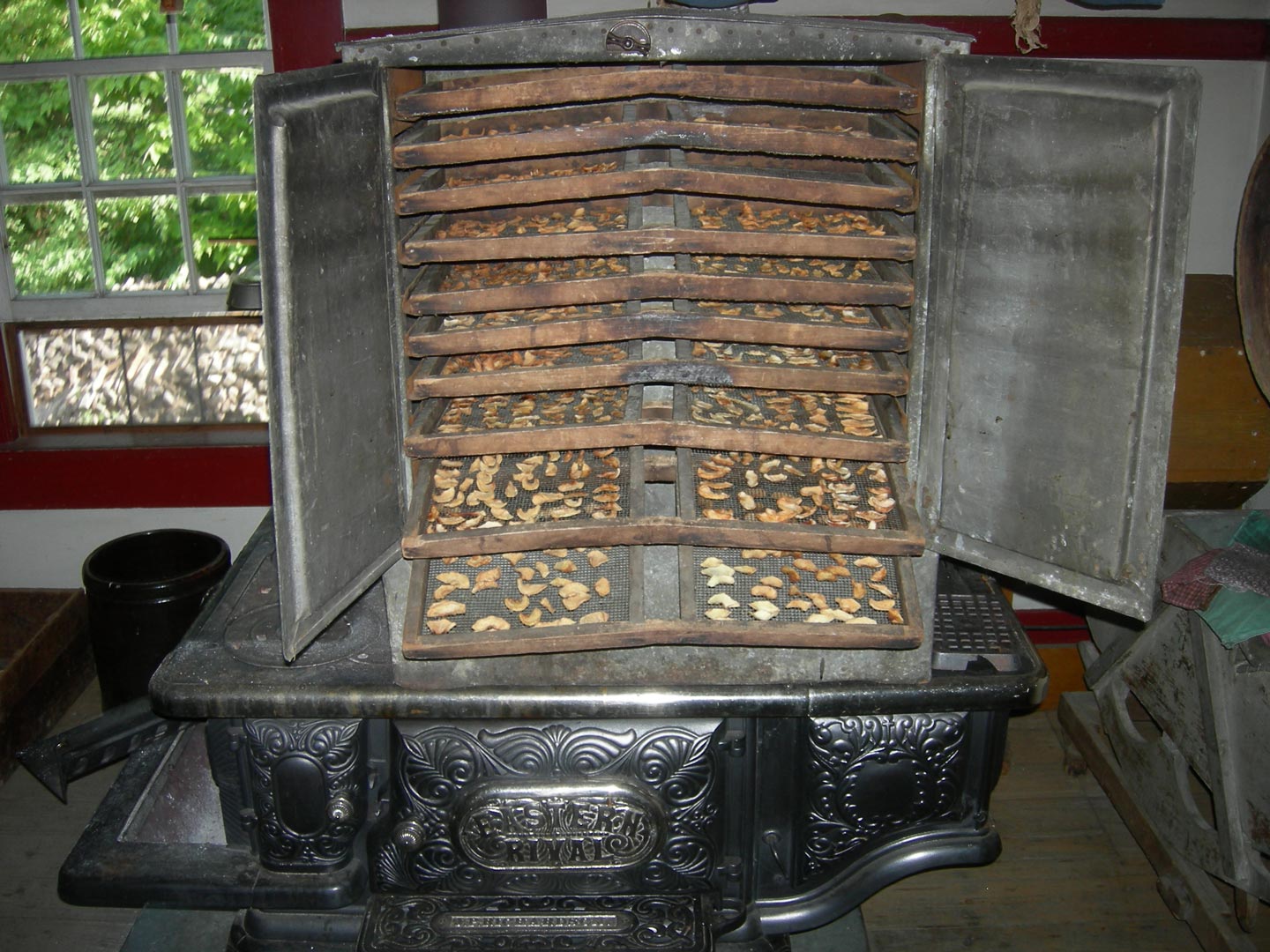

If you want to do some adapted steam cooking, get an old electric roasting pan and add wet sand. Jars need to be wrapped in canvas or dish towels. Stones, flat iron ore or clay? Wild ginger of course
Thank you, Cindy